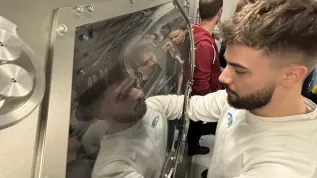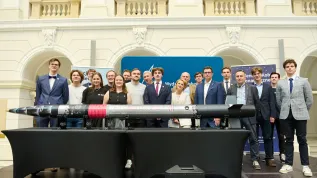
As many as 68 percent of students will use tools using artificial intelligence while studying, according to new research. Possible applications of AI include: language translations, work organization, creating presentations and writing papers.
The study 'Technology through the eyes of a student' by Digital Care shows that 97 percent of students in Poland already use electronic devices for learning. The devices used include: laptops (94%), smartphones (90%), tablets (32%), desktop computers (25%) and e-book readers (10%).
According to the report, 32 percent of students use smartphones for more than five hours a day, 44 percent for 3-5 hours a day, 23 percent for 1-3 hours a day, and 2 percent up to 1 hour a day.
According to Anna Kozłowska-Pietraszko from Digital Care, nearly 60 percent of students are interested in renting mobile devices at universities, mainly tablets and laptops, on a semester or annual basis. 'The possibility of renting mobile equipment from the university is positively assessed by as many as 75 percent of respondents,’ she says.
According to the report, during this academic year, 68 of percent students will also use artificial intelligence tools while studying. Possible uses include: language translations (52%), work organization (52%), creating presentations (50%) and writing papers (34%). Every fifth student plans to write a diploma (bachelor's, engineer's or master's) dissertation with the support of artificial intelligence.
According to the study, 20 percent of students have a very positive opinion on the use of artificial intelligence in the educational process during their studies, 40 percent - rather positive, 30 percent - neither positive nor negative, 8 percent - rather negative, and 2 percent - definitely negative. When asked about their willingness to develop competences in the use of AI as part of their university classes, 31 percent answered 'definitely yes', 43 percent 'probably yes', 15 percent 'neither yes nor no', 8 percent 'probably not', and 2 percent 'definitely not'.
The survey was conducted on September 28-30, 2023, via the Omnisurv IQS platform, on a sample of 500 students aged 19-35. (PAP)
Author: Adrian Reszczyński
ra/ drag/ kap/
tr. RL













